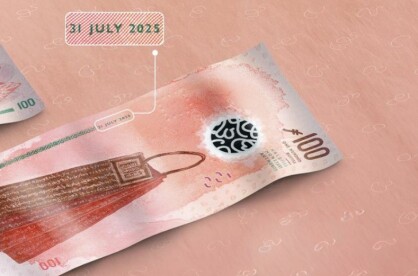Although the Maldives has one of the most well-established and well-respected tourism industries in the world, which generates millions of dollars every year - the Maldives found itself in a dollar shortage as the Bank of Maldives (BML) imposed a strict dollar limit in August 2024. This dollar limit that sent the entire country into a frenzy started when the bank suspected allowance for foreign transactions for debit cards linked to MVR accounts and reduced the monthly limit for standard fold credit cards to USD 100. This was one of the biggest signs that highlighted the financial state the Maldives was in, as the dollar shortage sent the entire nation into a panic with just one decision made by the bank.
While the decision regarding the strict dollar limit was reversed back to the limits set during the pandemic, one which the bank assured would be a temporary fix to ensure dollar security during the COVID-19 pandemic, the decision made on August 2024 was just the tip of the iceberg as it became evident just how much the country was struggling with the dollar shortage. This crisis raised significant concerns, particularly given that the Maldives generates millions of dollars through its luxury resorts, guesthouses, liveaboards, and other tourist facilities. Nearly two million tourists visiting the country annually—many paying for travel, accommodation, purchases, and even taxes in U.S. dollars—left many questioning how the nation’s central bank could still be facing a dollar shortage.
As one bad decision led to another and the CEO of the Bank put in his resignation, it became evident that the country was not benefitting from the millions of dollars that the tourism industry was bringing in each year. While it is no secret that resorts and resort owners have been avoiding paying their taxes and other fees as the Maldives Inland Revenue Authority (MIRA) started its name and shame list, it became evident that resorts were still not ready to step in and exchange their dollars through the bank even during the time of crisis.
Over the past few months, it became increasingly evident that a governing body needed to intervene and establish effective policies to integrate the tourism industry more directly into the country's banking system and cash flow. Without proper regulations and enforcement, the Maldives struggled to optimize its dollar flow despite the significant revenue generated by tourism. As this highlighted the urgent need for measures that would ensure the tourism sector plays a more active role in stabilizing the nation's foreign currency reserves, the Maldives Monetary Authority (MMA) has finally stepped in to take the necessary measures.
In a rule published in the Government Gazette in October 2024, the Maldives Monetary Authority (MMA) announced plans to implement a new foreign exchange regulation. This rule mandates that all foreign currency earnings from the tourism sector must be deposited in banks.
To initiate the process, MMA has instructed all operators in the tourism industry registered with MIRA to apply for re-registration within 30 days. Similarly, newly registered operators under MIRA must apply to MMA for registration within the same timeframe. Additionally, tourism service providers are required to submit details of their goods and services to MMA by the 28th of each following month.
Finally, MMA has informed operators that all foreign exchange earnings from the tourism sector must be deposited into a foreign exchange account at a bank no later than 87 days after the end of each month. This decision by MMA will help boost the availability of dollars in the Maldivian economy by ensuring that these funds are more efficiently tracked and circulated through the formal banking system.
By channelling foreign currency directly into banks, MMA can increase dollar liquidity, making it easier for the Government, local businesses, and individuals to access foreign currency for imports, debt repayments, and other transactions. This would further lead to a reduced reliance on informal or black market currency exchanges, helping stabilize the dollar supply and easing the cash flow problems that currently affect the economy. Additionally, this policy can lead to more effective monitoring of foreign exchange flows, enabling the government to implement better fiscal strategies for managing currency reserves and addressing economic challenges.
In order to hold resorts liable for the new rules published by MMA, the authority has also made it a requirement for resorts to submit the records to MMA after transferring the foreign currency to the bank. With these changes, MMA is officially forcing the tourism industry to implement a much needed rule that the industry has been avoiding for the past 53 or so years - exchanging dollars at a fixed rate by involving the banking system. With the new rule, tourist operators will be forced to exchange and deposit around USD 500 for each tourist visiting resorts, integrated resorts, resort hotels, hotels, tourist vehicles and other such places.
Although the new foreign exchange rule will bring some much needed major changes within the industry, some of the exemptions include:
- Money spent of the Government or the state
- Transactions with remittance service providers
- Transactions relating to insurance policies sold within the tourism sector
- Foreign transactions
- Price of goods and services sold to tourists
- Price of exported goods and services
- For goods or services purchased from a business that earns foreign currency income
- Dividend payments and transactions between shareholders in a foreign currency-earning business.
- Buying and selling shares in a business that earns foreign currency.
- Payment of salaries and allowances in foreign currency if required by a foreign currency earning business.
- Prices of goods and services sold to tourists by duty free shops.
The new foreign exchange rule marks a significant shift, repealing the 37-year-old regulation that had been in place since March 1, 1987. This change reflects the Maldives' efforts to modernize its foreign exchange policies and address the growing need for improved dollar liquidity within the economy.







